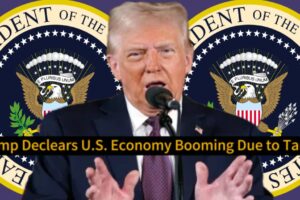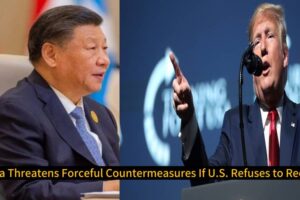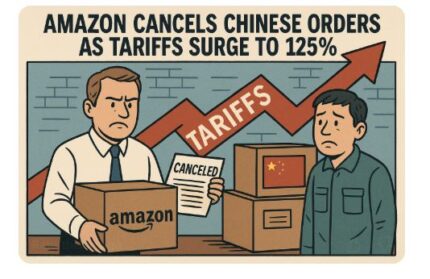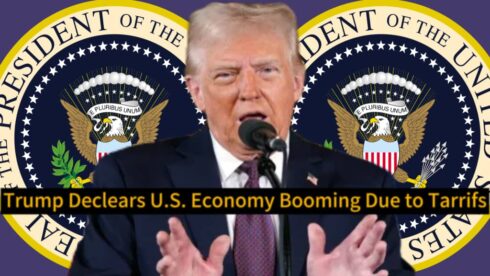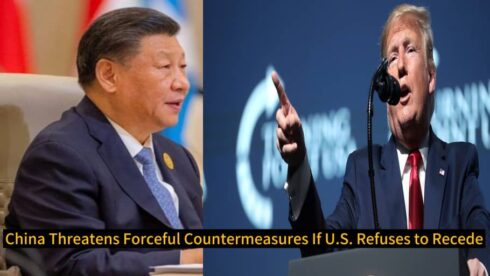Amazon Cancels Chinese Orders: In a response to escalating trade tensions, Amazon has abruptly canceled substantial merchandise orders from Chinese suppliers, a move directly tied to the recent U.S. government decision to raise tariffs on Chinese goods to a staggering 125%. The company’s operational pivot marks one of the most dramatic corporate reactions yet to the intensifying trade war.
Faced with the financial shock of inflated import duties, Amazon is actively restructuring its procurement processes to mitigate rising costs. The cancellations are part of a broader strategy to preserve profit margins and reorient supply chains away from heavily taxed imports. This adjustment, though economically strategic, comes with heavy consequences for both Amazon’s vendor partners and the broader retail ecosystem.
Amazon Cancels Chinese Orders: Longstanding Partnerships Disrupted
The decision to halt major orders has sent shockwaves through Amazon’s supplier network, straining long-established vendor relationships. A prominent example includes the cancellation of a $500,000 order for beach chairs, an abrupt move that caught the Chinese supplier off guard and left them scrambling to reallocate already-produced inventory.
For many suppliers, Amazon’s pivot represents more than just a lost transaction—it’s a disruption of business models that heavily depend on predictable, high-volume U.S. contracts. Smaller vendors, in particular, are bearing the brunt, with some reporting immediate financial distress due to the sudden loss of revenue and the burden of unsold stock.
Amazon Cancels Chinese Orders: Tariffs Redefining U.S. Retail Logistics
Across the American retail landscape, companies are reassessing their import strategies as the tariff situation grows increasingly volatile. The 125% tariff increase has injected a new level of unpredictability into the market, prompting many retailers to pause or reduce their order volumes from China.
The National Retail Federation (NRF) has projected a 20% decline in U.S. imports for the latter half of 2025. This period, typically driven by back-to-school and holiday shopping demands, is crucial for annual sales figures. Retailers are bracing for tight inventories, price inflation, and potential consumer backlash as they scramble to adapt to new sourcing realities.
Amazon Cancels Chinese Orders:Chinese Suppliers Facing Economic Fallout
Chinese manufacturers are now dealing with severe economic headwinds as their largest export partner pulls back. Many report they are unable to offer additional discounts to maintain competitiveness without operating at a loss. For factories already navigating thin margins, the impact of order cancellations is profound.
To remain viable, some manufacturers are considering shifting their market focus away from the U.S., exploring opportunities in Southeast Asia, Europe, and Africa. Others are preparing to scale down operations entirely, anticipating a prolonged downturn in demand from American buyers.
Amazon Cancels Chinese Orders: Global Trade at a Crossroads
The Amazon episode is emblematic of the larger turmoil engulfing global commerce. As the U.S.-China trade war deepens, ripple effects are being felt in port cities, manufacturing hubs, and retail headquarters around the world. Supply chains that took years to build are being dismantled in a matter of months.
Amazon Cancels Chinese Orders: International analysts warn that the continued politicization of trade policy threatens long-term economic stability. With companies like Amazon taking preemptive action to avoid tariff costs, other multinational corporations may soon follow suit, accelerating a decoupling of U.S.-China commercial ties that could reshape the future of global trade.
Consumers Brace for Price Hikes and Limited Selection
Amazon Cancels Chinese Orders: The consequences of this tariff-driven supply disruption will inevitably trickle down to consumers. With imports becoming more expensive, retailers are likely to pass on the additional costs through higher prices. At the same time, reduced inventory from traditional suppliers may lead to limited product availability on popular platforms like Amazon.
Shoppers during the 2025 holiday season could face steeper prices and fewer options, particularly for seasonal goods and imported items. Experts anticipate a rise in demand for domestically sourced alternatives, though these options may not match the scale or diversity of Chinese imports, potentially reshaping consumer expectations and shopping behavior.
Outlook: Strategic Realignment or Temporary Turbulence?
While Amazon’s swift action signals a dramatic short-term adjustment, questions remain about the long-term trajectory of U.S.-China trade relations. Will the tariffs hold, escalate further, or be reversed under new political leadership or trade agreements? Retailers and suppliers alike are watching Washington closely for policy cues.
In the meantime, companies are prioritizing flexibility, diversifying supplier bases, and exploring nearshoring options in countries like Mexico and Vietnam. Whether these changes represent a temporary reaction or the foundation of a new trade paradigm remains to be seen—but the message from Amazon is clear: the rules of global trade are changing, and fast.


